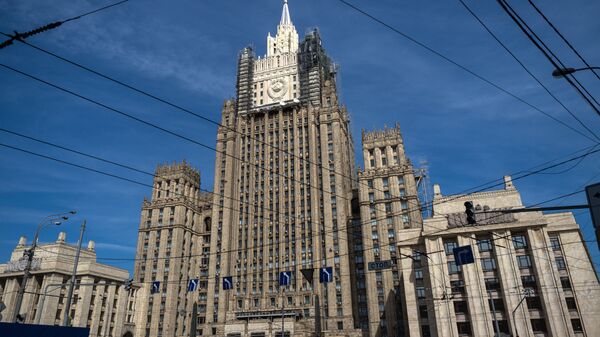Russian Deputy Foreign Minister Sergey Ryabkov spoke to Sputnik about the adoption of the Canadian analogue to the Magnitsky Act, which allows the sanctioning of any foreign official suspected of corruption or human rights violations, which came into effect last week.
"Concerning the response, of course, it will follow. And very quickly, immediately after the expected announcement of the lists, Canada has been speaking about. The lists of our citizens who may come under these unacceptable Canadian sanctions," Ryabkov said.
"We have given all assessments to this law, unacceptable from all viewpoints, which considerably complicates relations with Canada, relations that are already experiencing hard times… We have come to one sole conclusion from what has happened: politicians for whom bilateral relations with Russia are insignificant, who pursue their own goals, trying to play cheap geopolitical games are still setting the tone in Canada," Ryabkov told Sputnik.
The Russian deputy foreign minister once again mentioned the Canadian analogue to the Magnitsky Act, calling it unacceptable and noting that it complicates bilateral relations.
"It is clear to us and we are not dramatizing what is happening. This is the choice of the Canadian side, and it will not affect our policy and firm course in any way," he said.
In May, Canada's Foreign Affairs Minister Chrystia Freeland mentioned that the country's parliament was discussing imposing sanctions against foreign officials who could be linked to violations of human rights in their respective countries. Moscow has repeatedly warned Canada against the adoption of the law.
The US was the first country that introduced the so-called Magnitsky Act, approved at the end of 2012. The law let Washington impose both travel bans and financial sanctions on Russian officials who were allegedly connected with Sergei Magnitsky's trial and subsequent death.
Sergei Magnitsky was a lawyer at the London-based Hermitage Capital Management hedge fund. He was arrested in Moscow in 2008 on tax evasion charges and later died of heart failure while in prison. An official investigation into his death was closed due to lack of criminal evidence.
In 2015, the US Senate adopted the so-called Global Magnitsky Act, expanding Russia-specific human rights and corruption sanctions to other countries.





